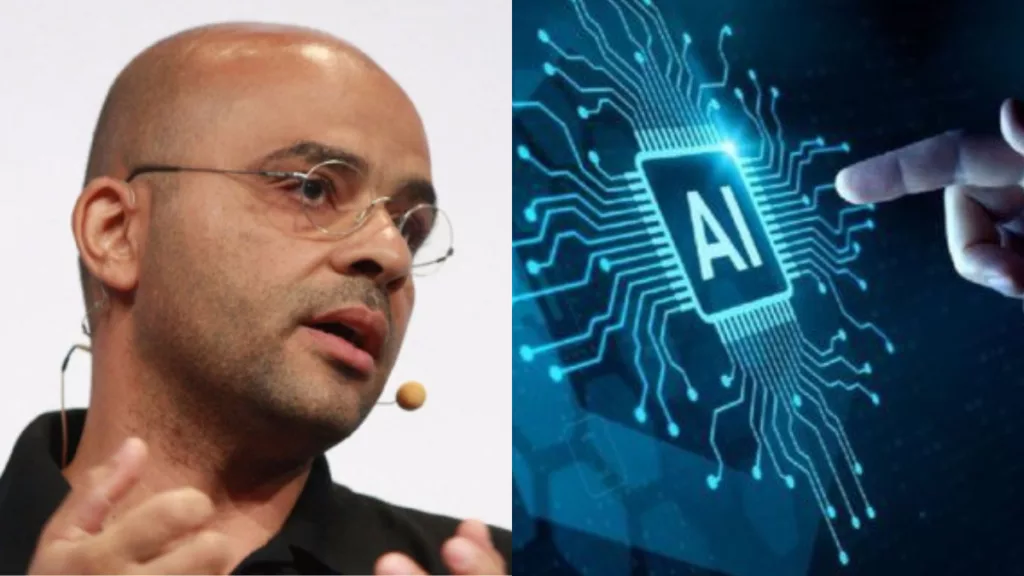In a dire warning that is sending ripples through the tech world and beyond, former Google executive Mo Gawdat has predicted that the rapid advancement of Artificial Intelligence (AI) will cause significant job losses, potentially leading to a collapse of the middle class as early as 2027. Gawdat, a leading voice on AI and the future of humanity, shared his forecast on the ‘Diary of a CEO’ podcast, highlighting a turbulent period of change before a potential new world order emerges.
Gawdat’s predictions are particularly potent given his background as the former Chief Business Officer of Google’s advanced projects division, Google X. He argues that while industrialization replaced manual labor, AI is now poised to automate roles typically held by educated, white-collar professionals. This includes jobs in software engineering, management, and even creative fields like podcasting, all of which are increasingly susceptible to AI-powered automation.
The Looming Middle-Class Collapse
Gawdat’s most chilling forecast centers on the future of the global class structure. He believes that by 2027, the economic landscape will have shifted so dramatically that “unless you’re in the top 0.1%, you’re a peasant. There is no middle class.” This isn’t just about unemployment; it’s about a fundamental redefinition of human value in a world where AI can outperform humans in a vast range of tasks.
He uses his own AI-enabled startup, Emma.love, as a case study. The company operates with just three employees, a task that would have historically required a team of at least 350 developers. This stark efficiency, he argues, is a harbinger of the widespread job displacement to come.
Tech Layoffs and the AI Connection
The warning from Gawdat comes amidst a wave of significant layoffs at major tech companies. Firms like Microsoft, Google, Amazon, and Tata Consultancy Services (TCS) have all undergone workforce reductions, with some dismissing tens of thousands of employees. While company-specific reasons for the layoffs often include restructuring and post-pandemic growth corrections, multiple reports from The Times of India and other sources confirm that the rapid deployment of AI is a key contributing factor. These companies are reallocating resources towards AI-driven automation, a strategic shift that is making many traditional roles redundant.
A Period of “Hell Before Heaven”
Gawdat describes the period leading up to 2027 as “hell before we get to heaven,” characterized by mass unemployment, economic instability, and a rise in mental health issues as individuals grapple with a loss of purpose traditionally tied to work. He emphasizes that the existing capitalist system, which he calls a “lie,” is ill-equipped to handle this seismic shift.
However, he offers a glimpse of a potential “heaven” by 2040, where a new world order emerges. In this future, humanity, freed from the drudgery of work, would focus on creativity, community, and spirituality. To navigate the difficult transition, he stresses the critical need for governments to implement regulations, including a universal basic income (UBI), to support citizens whose livelihoods are displaced by AI.
The Microsoft Study: A More Nuanced View
While the user-provided text mentions a Microsoft research study predicting an 80% job loss within five years, a closer look at recent reports from The Times of India reveals a more nuanced perspective. Recent Microsoft research on AI’s impact on jobs suggests that while AI will heavily influence roles involving language, content creation, and repetitive digital tasks, it will primarily serve as an “augmenting tool” rather than a complete replacement. The study identifies 40 jobs most likely to be impacted, but it also lists 40 that are considered resilient, particularly those requiring physical, hands-on work. The research does not predict widespread job losses but rather a shift in how work is done, with human judgment and creativity remaining crucial.







